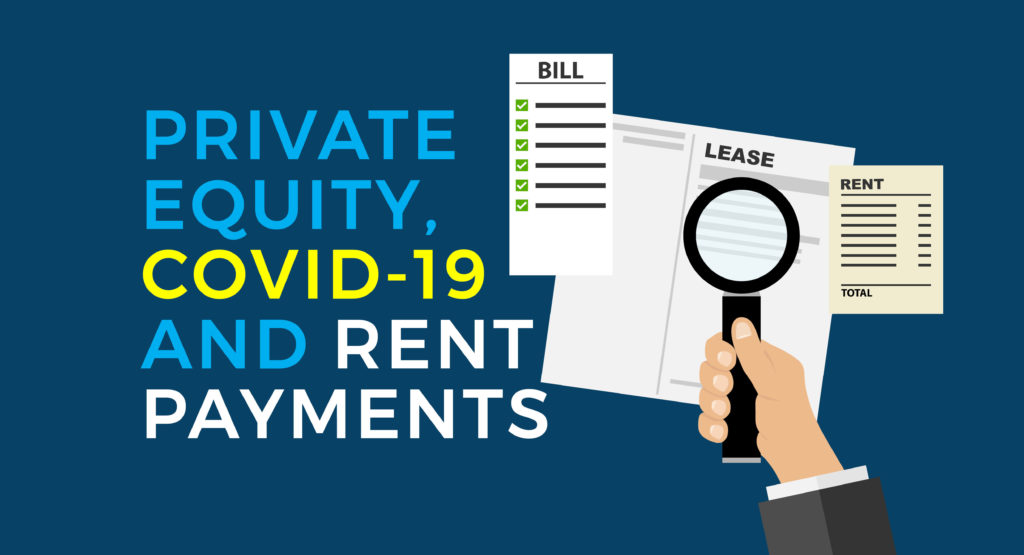
Written By: Collin Hart
Many practices across the country that have partnered with private equity have also retained ownership of their real estate.
During the transaction, you undoubtedly had the pleasure of negotiating a new lease, one that governs the relationship between you as the landlord and your private equity partner as the tenant.
It’s likely that the lease negotiation came in the later stages of your deal, and you probably didn’t get the exact terms you were looking for, but in the end, your practice transaction made it across the finish line. Now, you can sit back and collect those rent checks, a nice supplement to your salary as you sunset in your career.
But with the impact of COVID-19, the federal government’s order to “shelter in place,” and many states banning or discouraging elective procedures, most practices are operating on a bare bones staff, seeing only emergency patients and generating fractional revenues.
With practices and their private equity management in damage-control mode, we are in challenging times where staff have been furloughed to reduce operating costs and keep practices afloat.
If you own your practice real estate and still own your practice, you can create some additional savings by reducing the rental payments to your real estate partnership, pushing the payment down so it’s just enough to cover your loan payments. If you own your practice real estate, but partnered with private equity, it’s a different discussion.
One of your goals in partnering with private equity was to shed the risk of operating a business. Retaining the real estate was a nice way to create a secure stream of rental income. But with private equity management on the hunt for savings during this crisis, many of our clients are being approached about rent reductions or rent deferrals, jeopardizing their passive cash flow.
Of course, your interests are aligned with those of your private equity partner – you want your legacy to continue just as they want the practice to succeed, but it’s important to recognize that there is real value in acquiescing to requests for rent deferrals. Although your wish list for the “perfect lease” may have been pared down to get your practice transaction closed, you may now have an opportunity to improve the terms of your lease.
Many private equity management service organizations are requesting:
- Forgiveness of rent, to be reevaluated on a month-to-month basis
- Rent be temporarily reduced to cover only the debt service of the real estate partnership’s loan
- Three to six months of rent deferral, to be repaid over a set period of time, often 12 to 18 months
Depending on your real estate partnership’s situation, it may be advisable to cooperate with these requests for the greater good, but along with that, don’t be shy about asking for something in return. This could include:
- Extending the length of your lease to a fresh 12- or 15-year term
- Converting your rent schedule from flat to one with annual rental increases
- Shifting some of the landlord costs or responsibilities over to the tenant
Although these changes not only create a more secure investment for your real estate partnership, they also have the ability to enhance the value of your property if and when you elect to sell it. Under normal circumstances, your tenant has no incentive to make these changes, but in the current epidemic when you are being pressed for favors, ask for value in return.
About the author:
Collin Hart is the CEO and managing director of ERE Healthcare Real Estate Advisors where he leads the company’s strategy to provide executive level advisory to owners of healthcare real estate. Before co-founding ERE Advisors, Collin was a director in the real estate division of a private investment banking firm, where he focused on advising physician partnerships and hospital systems in sale-leaseback transactions. He earned his MBA from the SC Johnson School of Management at Cornell University.

